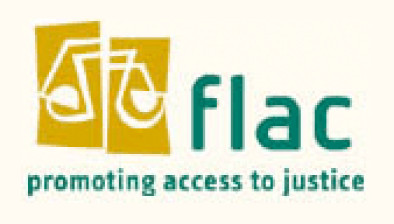NI High Court: Asylum seeker entitled to keep senior counsel support for appeal

Northern Ireland’s High Court has determined that it was unreasonable for an applicant to be denied legal aid, including the support of a senior counsel, for his asylum appeal where he was entitled to this during his original High Court case.

About this case:
- Citation:[2022] NIKB 13
- Judgment:
- Court:NI High Court
- Judge:Judge Adrian Colton QC
Background
This application involved a challenge to a decision of the Civil Legal Services Appeal panel made on 25 June 2021. The legal aid application related to an asylum claim.
The application queried whether a legal aid panel could remove an applicant’s access to representation by senior counsel after it was granted for a lower court, and the appeal merited the grant of legal aid.
The applicant challenged the refusal by the Panel to grant legal aid for senior counsel to prosecute his case in the Court of Appeal.
Arguments of the parties
At the court of first instance, the applicant had the benefit of legal aid and was represented by junior and senior counsel. However, on appeal, the Legal Services Agency (LSA) considered that “there was insufficient factual or legal complexity to warrant a higher level of representation” on appeal.
The LSA argued that the appeal case was simply a “re-run of the original case” and that the junior counsel “appeared with senior in the lower court and is well aware of the issues at this stage”. This case therefore did not “warrant the use of public funds for senior counsel in this instance”.
In contrast, the applicant argued that no panel, properly directing itself, could rationally have decided that senior counsel should not be permitted for the appeal hearing.
The court noted that the parties could not point to any specific guidance on when, and in what circumstances, legal aid should include an entitlement to senior counsel.
Consideration
The court began by outlining the applicant’s entitlement to receive legal aid. The judge noted that “entitlement to legal aid depends on meeting financial criteria and establishing reasonable grounds for taking, defending or being party to the proceedings”.
Here, the court found that the applicant met both the financial test and the merits test required. Ancillary to these was also the consideration of the degree of representation that an applicant may be entitled to.
Legal aid may be granted as solicitor only, as solicitor and junior counsel, or as solicitor, junior and senior counsel. Representation may also be limited to a certain stage in proceedings.
In considering any challenges to an LSA decision, the court also considered Regulation 4 of the Civil Legal Services (Appeals) Regulations (Northern Ireland) 2015. This states that appeals are permitted where the individual is dissatisfied with the level of representation provided.
These regulations do discuss the concept of “over-representation”, but the court found that these did not apply here. After analysing the reasons given for refusal, the issue was whether there was sufficient “factual or legal complexity to warrant a higher level of representation”.
In assessing this approach, the court found that this seemed to be a “reasonable yardstick for consideration of whether the certificate should cover senior counsel”. Further, the fact that the applicant had the benefit of senior counsel in the lower court did not mean that he should automatically have the benefit of senior counsel in an appeal.
However, while accepting that these arguments represented a very important starting point, the judge went on to note:
“In my own personal experience of over 30 years practice at the Bar and seven years on the Bench I have not come across a case where a plaintiff/applicant had the benefit of senior counsel in the lower court but not in a higher court on appeal, in circumstances where the merits test has been met.”
The fact that the appeal was being heard by the Court of Appeal, being the jurisdiction’s highest court, was a strong factor supporting representation by senior counsel.
Finally, the judge accepted that the appeal issues may well be merely a “re-run” of the original case, however, these points of law related to important asylum seeker rights, and the matter to be considered could, therefore, be characterised as a complex and important matter.
Conclusion
Having considered the issues raised in the grounds of appeal, and bearing in mind the court involved, the court came to the conclusion that this was one of those “very rare occasions” when the applicant could establish the high threshold of Wednesbury unreasonableness or irrationality.
Although the court was conscious not to interfere with administrative decisions, the judge was of the view that the applicant should be granted the same level of representation in the Court of Appeal as he was in the High Court, to include senior counsel.
The court therefore granted an order of certiorari quashing the decision of the respondent to refuse legal aid for senior counsel in respect of his appeal to the Court of Appeal.
The court declared that decision unlawful, and of no force or effect. The court directed that a differently constituted panel should reconsider the appeal against the refusal of funding for senior counsel in the applicant’s appeal to the Court of Appeal.











